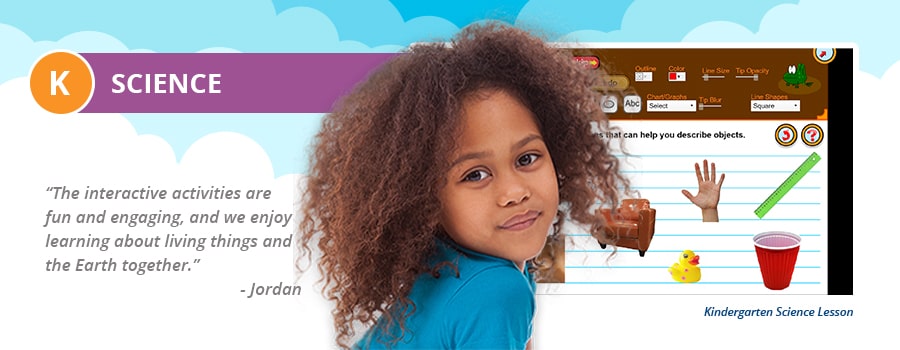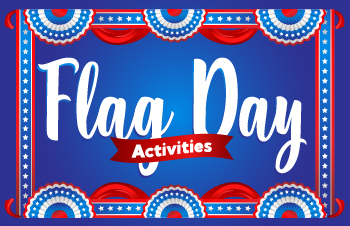Kindergarten Science Curriculum and Lesson Plans
The Time4Learning kindergarten science curriculum allows students to learn about the natural world around them and discover the connection that all living and nonliving things have with each other. This year, children will learn about various topics that will give them a better understanding of things like plants, animals, matter, and energy, just to name a few.
This page provides information on the Time4Learning kindergarten science curriculum, science objectives for kindergarten, and more.
What Do You Teach in Kindergarten Science?
Science lessons for kindergarten will teach students the basics in order to give them a foundation from which to build. Kindergarteners will learn the basics of physical science, Earth/space science, and also life science. In addition, students will learn scientific skills such as observing, how to communicate effectively, as well as the scientific principles of investigation and experimentation.
Below are some of the concepts and topics your child will learn in kindergarten science.
- Qualitative and quantitative observations
- Sources of energy
- Differences between living and nonliving things
- Different types of animals and their characteristics
- Earth’s materials and how living things use them
Kindergarten Science Objectives
This year, there will be several science objectives for kindergarten that students should achieve. Meeting their objectives will ensure they have a solid understanding of important science concepts and help them advance their studies in the years to come. Below are some of those objectives.
- Describe matter correctly and accurately
- Identify sources of energy used every day
- Describe the location of an object accurately using correct terminology
Learn more about Time4Learning’s kindergarten science lessons below.
Time4Learning’s Kindergarten Lesson Plans
Why Choose Time4Learning Kindergarten Science Homeschool Curriculum?
Time4Learning helps encourage your kindergartener to develop their curiosity and prompts them to make observations of the world around them. Our kindergarten science curriculum provides a comprehensive education that will help your young student reach all their science objectives for kindergarten. They will learn important science concepts through fun and interactive activities led by animated characters.
The award-winning kindergarten science program is based on the 5E instructional model of Engage, Explore, Explain, Elaborate, and Evaluate. In addition to teaching important science topics, the science lessons for kindergarten are also embedded with reading, math, and vocabulary to help students build important literacy skills.
Interested in other kindergarten subjects? Learn more about our online kindergarten curriculum, designed to teach your student their fundamental concepts.






